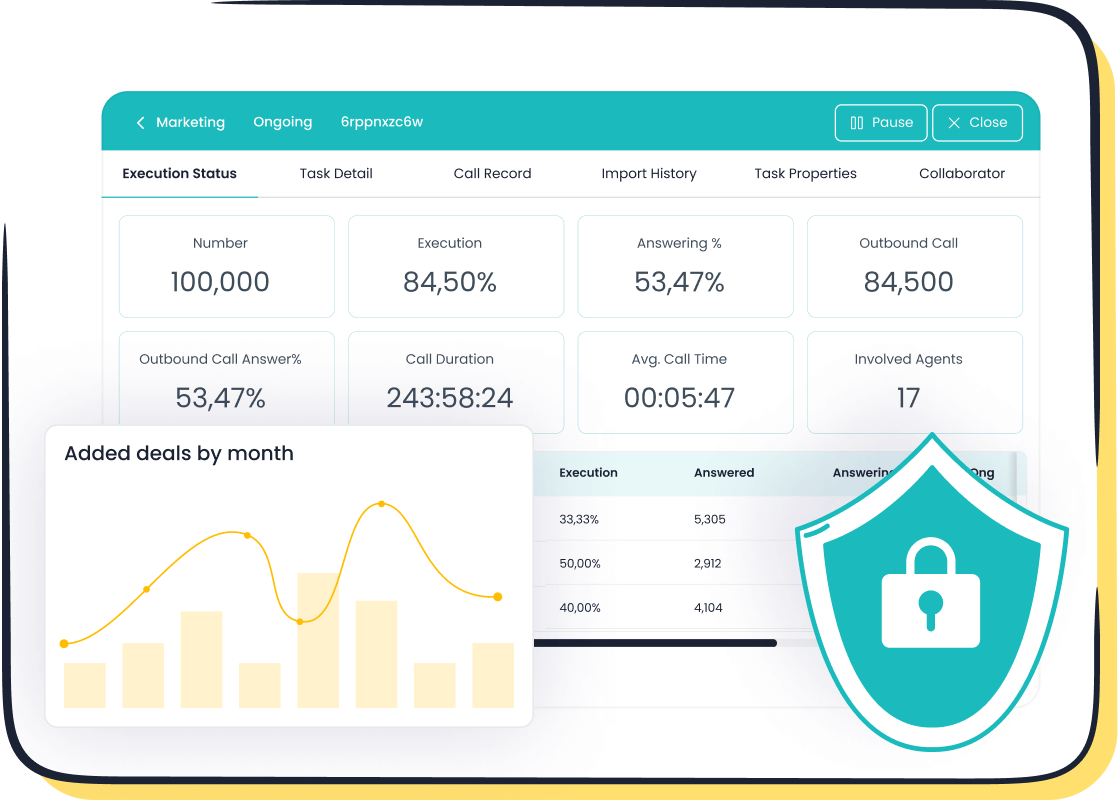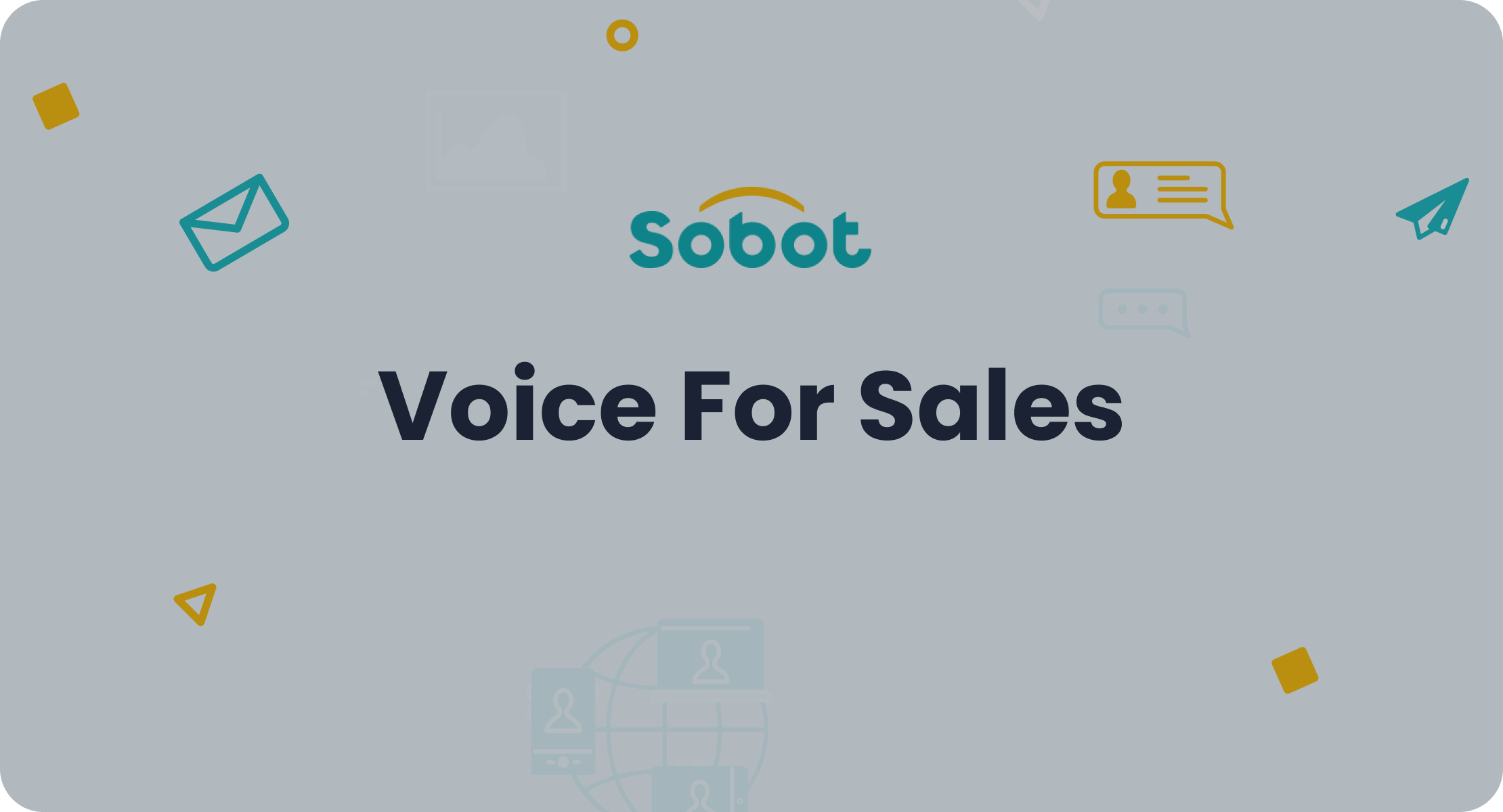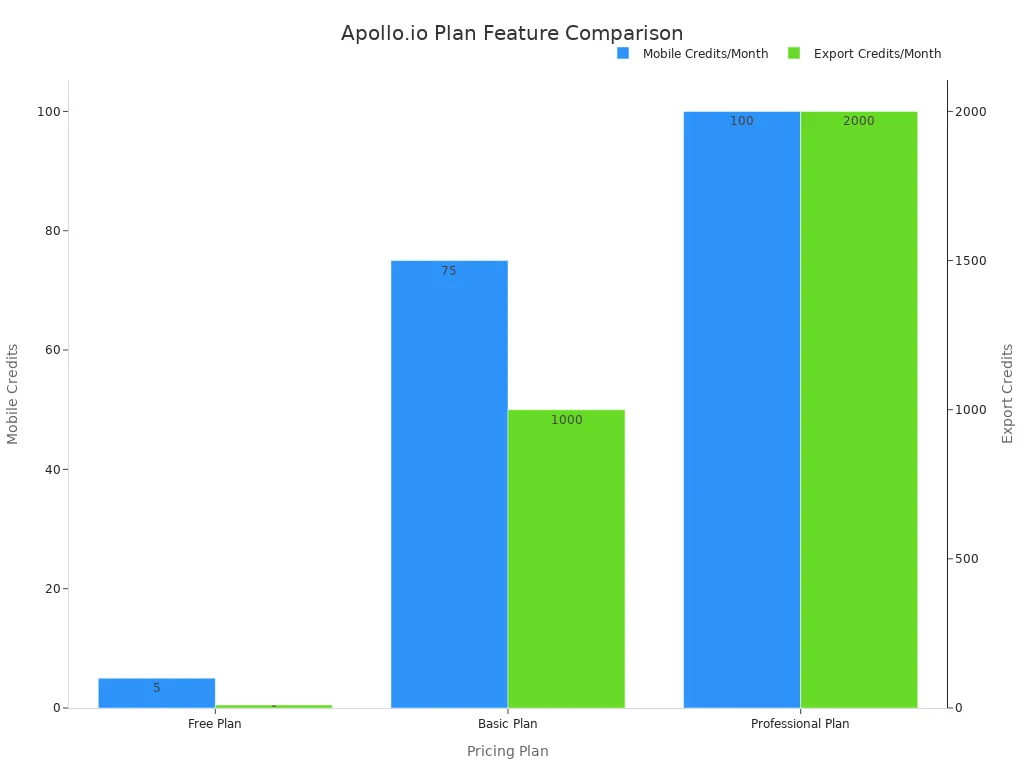The Truth About Apollo.io Outbound Sales Software

This Apollo.io review examines the popular outbound sales software. The truth about Apollo.io is simple. Apollo.io is a great data tool. Apollo.io is not a complete sales engagement platform. This review of Apollo.io will help you decide if Apollo.io is right for you. The Apollo.io platform, Apollo, is a choice many consider.
Apollo.io is best for solo reps. Scaling teams should look elsewhere. They need better sales engagement. Consider the Sobot call center. Apollo has limits. Apollo.io has issues. Apollo.io struggles. Apollo is not for everyone.
This blog reveals the performance gaps in Apollo.io. It shows issues with the Apollo platform. Apollo has hidden costs. Sobot AI offers a different approach. Apollo is a tool with a specific purpose.
An Apollo.io Review of Core Features

Apollo.io markets itself as an all-in-one solution. A closer look at its core features reveals a significant gap between promise and reality. This Apollo.io review breaks down what works and what fails for sales teams. The platform's features often look good on paper but show cracks under the pressure of daily outreach.
The Apollo Database and Prospecting
Apollo.io provides access to a massive B2B contact database. This is the platform's greatest strength. It boasts over 280 million leads. This makes it a powerful lead generation tool for sales prospecting. The search and filtering options are robust. They allow teams to build targeted lists with impressive granularity. This is where the praise for Apollo.io usually begins and ends.
The truth is that data quantity does not equal data quality. Apollo promotes a 91% email accuracy rate. However, user experience tells a different story.
- Phone numbers are a major point of frustration. Users frequently report that "half the numbers we called were dead."
- The data is often stale. Sales development representatives waste time contacting leads who have long since changed jobs.
- Email verification is inconsistent, despite the platform's claims.
This data problem forces teams to spend non-selling hours cleaning lists they paid for. One user trying to control costs found the data quality unusable.
“I wanted to keep costs down at SUB1, so I was happy to get good deals with TAMI and Apollo. However, they both lacked accurate contact data."
This user ultimately switched to a different provider. The prospecting capabilities of Apollo are powerful for list building, but the data requires heavy verification. This hidden work undermines the value of the platform's prospecting capabilities.
Sequencing and Automation
Apollo.io includes sequencing features for outreach automation. This allows users to build multi-channel outreach campaigns involving emails, calls, and LinkedIn tasks. The platform offers unlimited active sequences on its paid plans. This feature is designed to enable automated personalized outreach at scale.
However, the automation features feel underdeveloped. Users describe the conditional logic as a "V1 of something better." The system lacks the advanced "if-then" rules needed for truly dynamic and personalized communication. This limitation restricts the sophistication of your cold email outreach strategies. Furthermore, many users report that the campaign setup process itself is buggy. This creates friction where there should be efficiency. The automation in Apollo is functional for basic sequences. It is not a robust engine for complex sales prospecting.
| Plan | Active Sequences | Monthly Automated Steps |
|---|---|---|
| Free | 2 | Not specified |
| Basic | Unlimited | Not specified |
| Professional | Unlimited | Up to 500 |
| Organization | Unlimited | Implied comprehensive |
While higher-tier plans offer more automation credits, the underlying logic remains basic. This makes the automation features of Apollo a weak link for scaling teams.
Email Deliverability Issues
This is the most critical failure of Apollo.io as an outbound sales software. A sales engagement platform is worthless if its messages land in spam. Unfortunately, poor email deliverability is a consistent complaint against Apollo. Many users conducting cold email outreach find their open rates are better when sending emails manually. This defeats the purpose of using an email outreach tool.
The numbers expose the depth of the email deliverability problem.
- Independent tests show the actual email accuracy of Apollo data is closer to 73%, implying a potential bounce rate of 27%.
- Users regularly report bounce rates between 15-25% on lists of "verified" contacts from Apollo.
- Apollo's own documentation suggests an acceptable bounce rate is under 2%, a target difficult to hit on their platform without extensive manual list cleaning.
Two technical factors contribute to poor email deliverability on Apollo.io. First, the platform uses shared tracking domains by default. If other users on your shared domain have poor sending habits, your sender reputation gets damaged too. Second, the platform's guidance on email authentication is insufficient. Without properly configured SPF, DKIM, and DMARC records on your domain, your cold email outreach is more likely to be flagged as spam by receiving servers. These email deliverability issues make Apollo a risky choice for any team that relies on cold email outreach for lead generation.
AI and Productivity Tools
To keep up with industry trends, Apollo.io has integrated several AI features. These tools are designed to improve productivity. The platform offers AI for writing emails, summarizing calls, and creating follow-up tasks. The AI Personalization feature analyzes the vast Apollo database to help reps write more relevant messages faster. This is a useful application of AI for email personalization.
These AI features are helpful additions. They can speed up certain tasks for sales teams. However, they are productivity boosters, not solutions to the platform's core flaws. AI-generated email copy does not fix the underlying email deliverability problem. An AI-generated call summary is not useful if the outbound calling system itself is unreliable. The AI features in Apollo are a layer of polish on a shaky foundation. They do not address the fundamental gaps in automation, CRM integration, and outreach execution that prevent Apollo from being a top-tier sales prospecting tool for scaling teams seeking high-quality leads. The prospecting capabilities are strong, but the execution features, including multi-channel outreach, need significant improvement.
The True Cost of Apollo
Apollo.io presents an attractive price tag. This makes it a popular choice for teams watching their budget. The platform's pricing seems straightforward. However, the true cost of Apollo is hidden within its credit system. The sticker price does not reflect the actual operational expense for an active sales team.
Pricing Plans vs. Reality
Apollo offers several pricing tiers. Each plan provides a different number of credits for key actions. The Free plan is very limited. The paid Basic and Professional plans offer more, targeting small to medium-sized teams.
| Plan | Mobile Credits/Month | Email Credits | Export Credits/Month | Other Key Features |
|---|---|---|---|---|
| Free Plan | 5 | Unlimited | 10 | Ideal for individuals or small teams starting sales |
| Basic Plan | 75 | Unlimited | 1,000 | Advanced filters, integration with all email providers, ideal for small teams |
| Professional Plan | 100 | Unlimited | 2,000 | All Basic features plus AI-assisted email writing, advanced reporting, ideal for medium-sized companies |

The reality is that these credit allowances are smaller than they appear. An active sales team focused on lead generation will quickly find these limits restrictive. The unlimited email credits are appealing. Yet, their value decreases due to the platform's deliverability issues. The real cost of Apollo.io comes from the features that require credits, especially mobile numbers.
Credit Consumption Exposed
The credit system is where the affordable image of Apollo.io begins to crumble. Essential sales activities consume credits at a surprisingly high rate. Revealing a single mobile number costs a team eight credits. Exporting one contact record costs one export credit.
Let's consider a small sales team of three reps on the Professional plan.
- Each rep gets 100 mobile credits per month.
- This allows each rep to unlock just 12 mobile numbers (100 credits / 8 credits per number ≈ 12).
- A team of three can only get 36 direct dials per month before running out of credits.
This number is extremely low for any serious outbound effort. A single sales rep often needs to make dozens of calls per day for effective lead generation. The included credits on Apollo barely cover one hour of work.
Once a team depletes its monthly credits, it must purchase more. Extra credits cost around $0.20 each. They must be bought in minimum batches of 250. This creates a pay-to-play environment. The advertised monthly subscription for Apollo.io becomes a base fee, not the total cost. Advanced API access also consumes credits, adding another potential expense for teams needing integration. The Apollo platform's credit model makes serious lead generation an expensive add-on.
The Final Verdict on Value
Does Apollo.io offer good value? The answer depends on the team's goals. For startups and very small teams, Apollo can be a cost-effective starting point. It bundles data and basic outreach tools into one affordable package. This eliminates the need for multiple subscriptions. The platform's quick setup and intuitive interface are also valuable for teams without dedicated IT support.
However, one must look at the total cost of ownership. When a team's primary goal is high-volume outbound prospecting, the value of Apollo diminishes quickly. The cost of purchasing extra credits for essential data like phone numbers can inflate the monthly bill significantly. This hidden cost makes Apollo.io less of a bargain.
The Verdict: Apollo.io provides excellent value as a data discovery and list-building tool for teams on a tight budget. It is a strong platform for initial lead generation. The value proposition weakens when it is used as a complete sales execution platform. Scaling teams will find the operational costs and feature limitations of Apollo a major barrier to growth. The true cost of Apollo is far more than its subscription fee.
User Experience and Alternatives
The user experience on Apollo.io presents a mix of efficiency and frustration. While some features streamline workflows, others create significant roadblocks for sales teams. Understanding these nuances is key to deciding if Apollo is the right outbound sales software.
The Good vs. The Buggy
Apollo.io shines with its Chrome extension. This tool allows reps to find contact data directly on LinkedIn profiles and company websites. It is a powerful feature for quick prospecting. However, the main platform often suffers from glitches. Users report a clunky interface and frequent bugs that disrupt workflows. The platform's automation, for example, can be unreliable for complex cold email outreach campaigns. This inconsistency makes the user experience on Apollo a tale of two products: one great extension and one buggy web app.
Workflow and CRM Integration
A smooth workflow is critical for sales. Apollo.io offers bi-directional CRM integration with platforms like HubSpot and Salesforce. This sync includes both default and custom fields, ensuring data consistency. Updates made in Apollo or the CRM are reflected in both systems. This feature is a major benefit. It helps teams maintain a single source of truth for customer data. The CRM integration in Apollo is a strong point for teams needing to connect their outreach efforts with their central database.
Customer Support Tiers
Customer support quality on Apollo.io depends heavily on the user's subscription plan. Users on lower-priced or free plans often report slow response times and unhelpful support. This creates a poor experience for many small teams.
Getting timely help is a challenge unless you pay for a premium plan. This tiered support model leaves many users feeling stranded when they encounter issues with the Apollo platform.
Outbound Calling Limitations
The outbound calling feature in Apollo.io is basic. It lacks the advanced capabilities needed for high-volume outreach. For instance, while Apollo offers local presence dialing, connection rates can still be low. This is a major problem for teams that rely on calling for their cold email outreach and sales process. The automation for calling is also limited.
For teams that need a robust calling solution, a specialized platform is a better choice. Sobot Voice for Sales excels where Apollo falls short. It offers high-quality global caller ID and local numbers to significantly boost connection rates. Sobot's platform is designed for telesales, providing reliable automation and seamless CRM integration to double conversion rates. It solves the core calling issues found in all-in-one tools like Apollo.

This Apollo.io review confirms Apollo.io is a strong data source. Apollo.io is a flawed sales engagement platform. Apollo has poor email deliverability. The Apollo platform's email deliverability hurts outreach. Apollo.io has weak email deliverability. This review of Apollo shows its email deliverability is a core issue. Apollo.io struggles with email deliverability.
- Pros: Apollo.io offers a large database and good campaign automation.
- Cons: Apollo has data limitations, poor email deliverability, and high credit costs.
Use Apollo.io for its data. A dedicated outbound sales software is necessary for superior outreach, calling, and CRM integration.
For robust calling, Sobot Voice for Sales is the ideal outbound sales software. It doubles conversion rates. It offers seamless CRM integration. Sobot uses high-quality global caller ID to solve the connection issues found in the Apollo.io sales engagement platform. This improves outreach success.
FAQ
Is apollo.io good for outbound calling?
The apollo.io platform offers basic calling features. However, apollo is not a specialized calling tool. Teams needing high connection rates and robust calling automation often find apollo.io limiting. The apollo platform struggles with the demands of high-volume telesales, making apollo a poor choice for this purpose.
What is the biggest problem with apollo.io?
Poor email deliverability is the biggest problem with apollo.io. Many users report that emails sent from apollo land in spam folders. This issue undermines the value of the apollo.io platform for cold outreach campaigns. The apollo system's shared domains contribute to this significant problem.
Is apollo.io really free?
The apollo.io free plan exists but is very restrictive. The true cost of apollo.io is in its credit system. Active teams quickly use their monthly credits for phone numbers and exports. They must then purchase more credits, making apollo more expensive than its sticker price suggests.
Who should use apollo?
Solo sales reps and small teams on a tight budget should use apollo. The apollo platform is a strong data acquisition tool for building prospect lists. Scaling teams that need reliable execution for calling and email should look for alternatives to apollo.io.
See Also
Best Free CRM Solutions for Call Centers This Year
An In-Depth Look at AI for Enterprise Call Centers
Boosting E-commerce Sales with Effective Live Chat Software
The Leading Automated Voice Calling Software Solutions of 2024
Your Comprehensive Guide to Omnichannel Call Center Software
